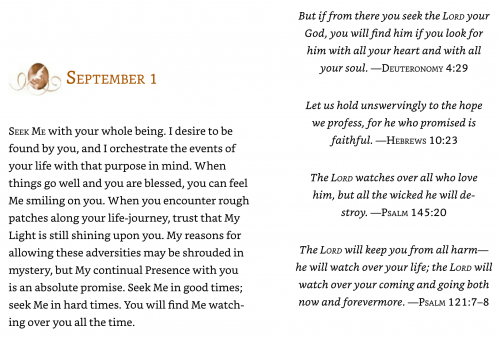True Self/Separate Self
Trusting
in the “True You”
Wednesday, September 2,
2020
Our separate self is who we think we are, but our thinking does not make it true. It is a social and mental construct that gets us started on life’s journey. It is a set of agreements between us as individuals and our parents, families, school friends, partner or spouse, culture, and religion. It is our “container.” It is largely defined in distinction from others, precisely as our separate and unique self. It is probably necessary to get started, but it becomes problematic when we stop there and spend the rest of our lives promoting and protecting it. This small and separate self is merely our launching pad: our appearance, education, job, money, success, and so on. These are the trappings of ego that help us get through an ordinary day.
Please understand that the separate self is not bad or inherently deceitful. It is actually quite good and necessary as far as it goes; it just does not go far enough. Too often, it poses and substitutes for the real thing and pretends to be more than it is. The separate self is bogus more than bad. We need the temporary costumes of our egoic selves to get started, but they show their limitations when they stay around too long.
When we are able to move beyond our separate self, it will feel as if we lost nothing important at all. Of course, if we don’t know that there is anything “beyond” the separate self, the transition will probably feel like dying. Only after we have fallen into the True Self, will we be able to say with the mystic Rumi (1207‒1273), “What have I ever lost by dying?” [1] We have discovered true freedom and liberation. When we are connected to the Whole, we no longer need to protect or defend the smaller parts. We are connected to something inexhaustible and unhurtable. The True Self cannot be hurt. I said that at the National AIDS Conference one time, and it was one of the most healing lines for that crowd. I got letters for months afterward; they realized the “True You” is indestructible. All our hurts and feelings of being offended come from our separate selves.
If we do not let go of our separate self/false self at the right time and in the right way, we remain stuck, trapped, and addicted. (The traditional word for that was sin.) Unfortunately, many people reach old age still entrenched in their egoic operating system. Only our True Self lives forever and is truly free in this world.
